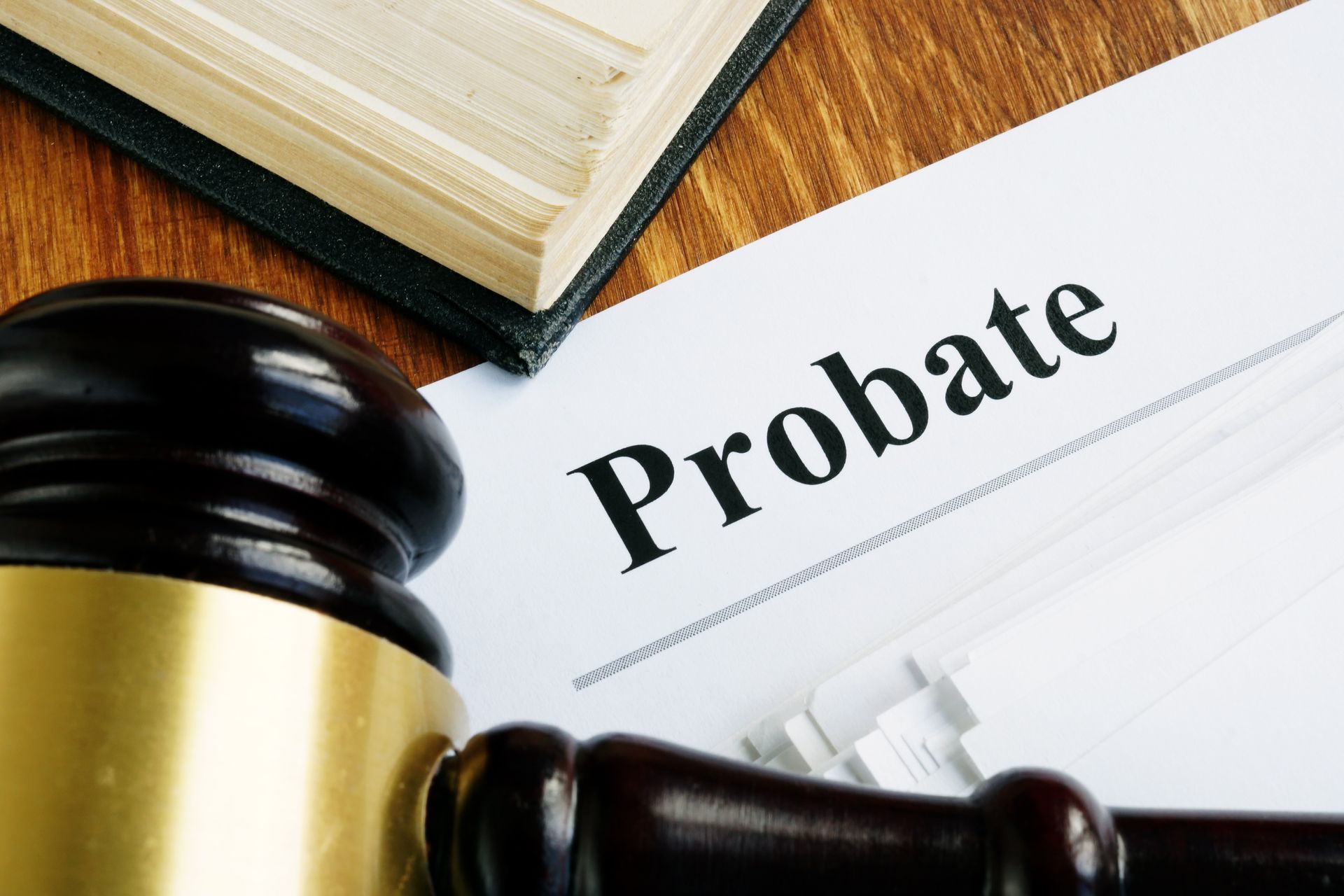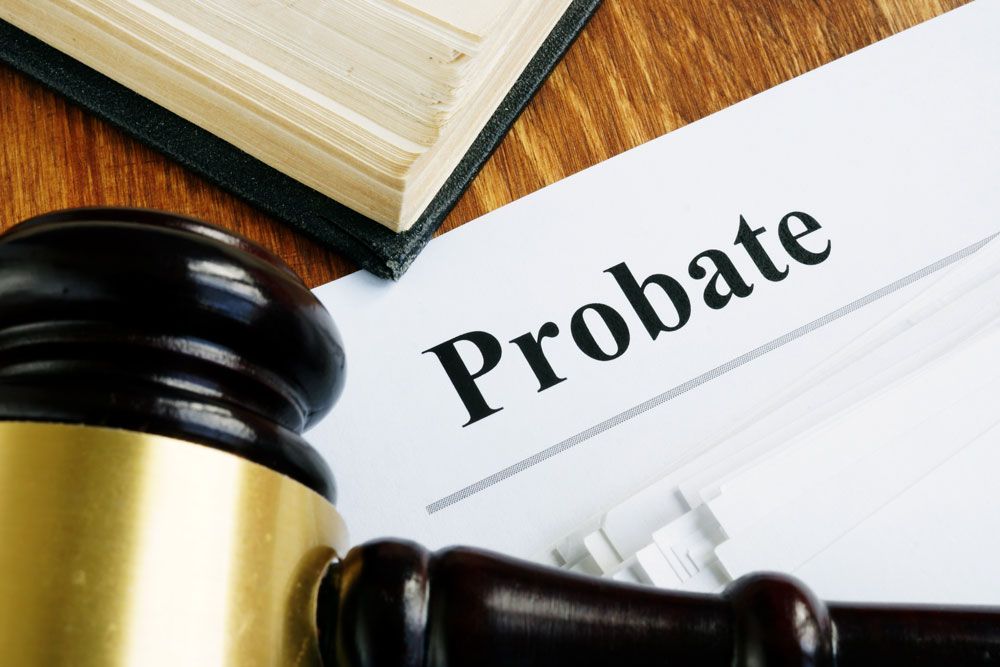Contact Us
Phone: 770-790-4955
Location
6075 Barfield Road
Sandy Springs, Georgia 30328
Hours
- Mon - Fri
- -
- Sat - Sun
- Closed
Call Now: 770-790-4955
Our Legal Blog
Your Resource For Legal Information

01 Nov, 2023
Creating a trust is one of the most effective ways to protect your assets, ensure your beneficiaries’ financial future, and minimize probate costs. In simple terms, a trust is a legal arrangement where you transfer ownership of your property to a trustee who manages and distributes it to entitled beneficiaries. Trusts come in various types and have different terms, which can make selecting the right kind overwhelming. In this blog post, we’ll cover the basics of trusts, the common types, the terms, and how to determine the kind that suits your goals best. What is a Trust? For most people, a trust is a way to put their assets in the hands of someone they trust and provide for their loved ones, while avoiding probate and unnecessary taxes. A trust involves three parties: the grantor (the person creating the trust), the trustee (the person who holds the property in trust), and the beneficiary (the person who receives the trust property). Once a trust is formed, the trustee has legal authority over trust assets and must manage assets according to the document’s instructions. What are the Terms of a Trust? Trusts can have different terms. In general, the terms of a trust are the instructions given by the grantor that dictate how the trustee will handle and distribute trust assets. This includes the purpose of the trust, the beneficiaries, how assets can be used during the grantor’s life, and how the trust will make distributions after death. A trust can also have conditions or terms that a beneficiary must meet before receiving trust assets, such as completing education, attaining a certain age, or staying sober. What are Common Types of Trusts? There are several types of trusts available. Some common types include revocable trusts, irrevocable trusts, testamentary trusts, special needs trusts, and spendthrift trusts. A revocable trust is created during the grantor’s life and can be changed or terminated anytime, while irrevocable trusts are permanent and cannot be changed. A testamentary trust is created through a will and goes into effect after the grantor’s death. Special needs trusts are designed to financially support beneficiaries with disabilities while preserving their eligibility for government benefits. Spendthrift trusts protect beneficiaries from their own financial mismanagement or creditors. How Do You Determine What Kind of Trust You Need? The type of trust you need depends on your specific goals, assets, and individual circumstances. For instance, if you want flexibility in managing your assets during your lifetime, a revocable trust might be right for you. If you’re looking to protect your assets from creditors or estate taxes, then an irrevocable trust might make more sense. Similarly, if you have a beneficiary with special needs, a special needs trust could provide for them without jeopardizing their government benefits. An experienced trust and estate attorney can help evaluate your situation and draft a trust with terms that align with your unique priorities. How Can An Attorney Help? Creating a trust involves several legal and practical considerations. An attorney can help you understand the pros and cons of various trust types, draft a trust agreement that aligns with your goals and priorities, and ensure that the trust complies with state and federal laws. An attorney can also assist with funding the trust, selecting a trustee, and managing trust assets. Ultimately, an attorney can help protect your assets, give you peace of mind, and ensure that your beneficiaries are taken care of according to your wishes. Creating a trust is a crucial part of estate planning that can provide financial protection and peace of mind to you and your beneficiaries. By understanding the different types of trusts, their terms, and how to evaluate your needs, you can choose the right kind of trust that aligns with your goals. An experienced trust and estate attorney can help navigate the complexities of creating a trust, and ensure that your assets are protected and distributed according to your wishes. So, consult an attorney and start securing your financial future today!

By Calvin Edwards
•
30 Sep, 2023
Dealing with the death of a loved one is an emotionally overwhelming experience, and the last thing you want to deal with is going through the legal process of probate. Probate proceedings can be complex, but they are necessary to finalize the estate of the deceased person. Unfortunately, many people choose to overlook this legal process and fail to file for probate, leading to potential legal complications. In this blog post, we will explore what happens if you don't file for probate in Georgia, what the process is like, and why you may need to probate the decedent's estate. We will also give you some tips on how to decide whether you need to probate and how an attorney can be of help in this situation. First, let's define what probate is. Probate is the legal process of distributing the property of a deceased person to their beneficiaries. It is a court-supervised process that validates the will of the deceased, identifies and settles debts and expenses, and distributes assets to legal heirs and beneficiaries. In Georgia, if the value of the deceased person's property is more than $10,000, then the estate needs to go through the probate process. Now let's talk about what happens if you don't file for probate in Georgia. When a person dies, their assets and debts become part of their estate. Without going through probate, the legal ownership of those assets remains in the name of the deceased person, and their debts remain unpaid. This can lead to a complicated legal situation for the deceased person's heirs and creditors. If creditors have secured claims against the estate, they can try to collect from the assets in the estate before they are dispersed to the heirs. If there is no will, the court will appoint a personal representative or administrator to handle the administration of the estate. The probate process in Georgia involves several steps. The first is to file a petition with the probate court in the county where the deceased person lived. The court will issue letters testamentary that authorize the person named in the will to administer the estate. Then, the personal representative needs to locate the assets of the deceased, inventory them, and appraise their value. They need to pay outstanding debts and taxes and distribute the remaining assets to the beneficiaries named in the will. The process can take up to a year or more, depending on the size and complexity of the estate. Deciding whether or not to probate the estate can be difficult. If the deceased person had a will, it is straightforward because the will usually names an executor who will handle the estate's probate. Without a will, the process can be more complicated because the court will appoint a personal representative. Probate may also be necessary if there are outstanding debts, or there is a dispute about the will's validity or interpretation. In some cases, probate may not be necessary, such as if the deceased person's property was jointly owned or if the estate doesn't meet the $10,000 threshold. Finally, how can an attorney help you navigate the probate process? A probate attorney can guide you through the process, helping you evaluate whether or not probate is necessary and providing legal advice. They can also help you file the necessary paperwork, locate and value assets, pay off debts and taxes, and distribute assets to beneficiaries. An attorney can also help you avoid potential legal pitfalls, such as challenges to the validity of the will or disputes about inheritance. While an attorney may seem like an unnecessary expense, it can save you time, money, and potential legal complications in the long run. Dealing with the death of a loved one is never easy, but filing for probate in Georgia is important to ensure that the deceased person's assets are distributed correctly and legally. Avoiding probate can lead to complicated and costly legal problems down the road. Understanding the probate process, deciding if probate is necessary, and hiring an attorney to help you navigate the process are critical steps in administering the estate of your loved one. Don't let fear or uncertainty cause you to make mistakes that may cause more pain and legal issues later. Take the time to understand and follow the probate process in Georgia.

29 Jul, 2022
If you are grieving the recent passing of a family member, allow us to first offer our condolences for your loss. We know how difficult death can be. It is a little easier on you and your family, at least legally, if your loved one left a will behind with instructions on how their estate should be divided. Wills in Georgia may have to go through a court process known as probate before you and your family members can receive your loved one’s possessions. Probate begins with submitting the will to the court, but if this is the first time you’ve lost someone close to you, how do you file a will in Georgia, and what do you need to know? It’s a legal matter – does that mean that you need a lawyer? How long does it take? How much does it cost? Let’s take a closer look at these questions so you can navigate the process with confidence. What Constitutes A Will? An official will is a “last will and testament” of the deceased party, detailing the distribution of their assets to any heirs or beneficiaries and naming the personal representative responsible for distributing those assets. The state of Georgia does not recognize holographic wills (which are handwritten but not signed by two witnesses) or oral wills (wills that are recorded by audio or video). For a will to be valid in Georgia, it must be: The last known copy of the decedent’s desires Voluntarily made by a sane person over 14 years old Made while the decedent is not under the influence of duress, misrepresentation, or undue influence Signed by the decedent and two witnesses at the time of creation There may also be other legal specifications that determine the validity of the specific will in question your loved one created. Note that if there was not a will, or if the will is determined to be legally invalid, the state will determine how to divide up your loved one’s assets according to Georgia’s intestacy laws. How To File A Will In Georgia Filing a will is a long, complicated process. It is also a consequential one – it will determine who is in charge of the distribution of the deceased family member’s assets and how the family should bury or inter the deceased family member. Because administering the will through probate is so personal and sensitive, it is in your best interests to work with a reputable Georgia probate lawyer who can handle all of the paperwork for you and ensure that your loved one’s final wishes are carried out. There are many steps involved in filing your loved one’s will, including: 1. Finding Copies Of The Will First, if there are multiple copies of the will, the family must locate all of them. Georgia law states that you must file all existing copies of the document to the court so that they can review them, although the latest copy will be the official one used. 2. Reviewing Signatures After finding copies of the will, you have to check for valid signatures from the decedent and their two witnesses. Without those signatures, the will is not valid according to Georgia state laws. 3. Determining If The Will Is Self-Proved Next, you have to determine whether the will is self-proved (has a notarized self-proving affidavit attached to it). If the will is self-proved, you will not have to locate the witnesses who signed the will to testify to its validity. Self-proving wills can be filed much more quickly than those without the affidavit. 4. Contacting Witnesses If the will is not self-proved, you must find each of the witnesses and get them to sign a form known as the “GPCSF 6.” This form affirms the legitimacy of the will to the probate court. Keep the contact information of the witnesses, even after they have signed the form, as the court will call witnesses to testify if anyone contests the will. 5. Taking the Oath Once the court inspects and approves the will, they will appoint an executor – the person who was named in the will to carry out the will’s directions. The executor must take the executor’s oath with the court, which states that the executor will follow the laws and court instructions in executing the deceased family member’s will. 6. Obtaining Letters Once the executor takes the oath, the courts release the Letters Testamentary. These letters indicate the executor’s authority to act on behalf of the deceased. At this point, the probate process begins, and there are numerous other legal steps that the will’s executor has to take before the deceased person’s assets can be officially transferred to their beneficiaries. Call Peach State Probate; We Can File The Will For You! The last thing you want to be doing when you are grieving is spending time filling out legal paperwork and trying to navigate the probate process on your own. There are many fees associated with filing a will and completing probate in Georgia, and any mistakes made along the way (such as missing deadlines) can incur additional costs or prolong the process. In order to protect yourself from probate’s pitfalls and stresses, you can enlist the services of a compassionate probate lawyer who will take the burden of filing the will and handling the other steps off of you. Peach State Probate is here for you so you don’t have to face probate alone or with fear! We empower you with the support, information, and advice necessary to face it with confidence. Our assistance will make a major difference in how efficiently and quickly your case is resolved. If the will is contested, or if there are any issues with its validity, we can stand up for your rights and fight to honor your loved one’s wishes. Call today to book a free consultation with our lead attorney, Calvin A. Edwards, Jr., and learn more about what our firm can do to serve you.

29 Jul, 2022
Did a family member of yours recently pass away? If they did, allow us to express our deepest sympathies for our loss. Death is hard, and it’s even harder when you find yourself facing the probate process. Probate is a complex legal ordeal that may be necessary in order to carry out the contents of your loved one’s will and settle their estate; it takes up a lot of time and requires you to sort through a lot of red tape and paperwork. Losing someone you love is already tough; dealing with the legalities is the last thing you want to be doing. You may never have even heard of probate until now – most Georgia residents haven’t – and you may be at a loss for what to do next. It’s a legal process, so does that mean that you need a probate lawyer in Georgia to probate a will, or is it something you can handle on your own? The answer to that question is best explained by looking at what probate is and what it involves. What Is Probate? Probate is a lengthy, complicated Georgia court process designed to administer – or distribute – the estate of a deceased person, who is legally known as the decedent. The family left behind has to close the estate by submitting the will to the court and transferring ownership of the decedent’s personal property and real estate according to the terms of the will through a variety of court-supervised steps , including: Opening A Safe Deposit Box, If The Will Is There Often, decedents left their will in their home or with their lawyer, but sometimes, decedents left their will in a safe deposit box in a bank. The will must be filed with the court in order to start probate. If the family knows that it’s in a safe deposit box, they first need to petition the courts and the bank for access to the box. If the petition is successful, the bank submits the will to the probate court. In addition, if the bank finds any life insurance policies within the box, they must offer those to the listed beneficiaries. Anything else in the box stays there until the state appoints an executor over the estate. Appointing A Representative Wills name a personal representative, or executor, who is responsible for executing the will and overseeing probate. Their job is to follow the will’s directions and the court’s procedures in order to carry out the terms of the will. The representative/executor must be approved by the court before they can begin addressing their responsibilities. Choosing A Type Of Probate The executor has to file probate forms and has two options for how to probate a will in Georgia. The first is common form probate. This is the easiest type. It doesn’t require the representative/executor to handle as many steps; it is designed to simply pass the decedent’s property on. However, common form probate won’t be “officially” closed for four years, meaning that any issues can arise and anyone can contest the will during that time. The second form is known as solemn form probate. This requires the representative/executor to formally notify any creditor or beneficiary who has interest in the will as part of the probate process. The parties have a chance to contest any decisions, but as soon as probate is closed, it is legally binding, and they are no longer able to raise any issues. Petitioning For A Year’s Support Any surviving spouse or children may petition the court to set aside property in the estate that may help support them for one year. This petition is unique to Georgia law! If the petition is successful, the spouse or child has absolute priority over any other recipient of that property outlined in the will. Inventorying The Decedent’s Assets The representative/executor must take a total inventory of the decedent’s estate – a summary, evaluation, and appraisal of everything they owned. This inventory must be completely accurate. After taking inventory, in solemn form probate, a copy must be sent to every party involved with the will. Settling Debts, Claims, Taxes After the representative/executor finishes the inventory, they must settle any claims against the estate and pay any either negotiated or original outstanding debts that the decedent had. A final tax return must be filed, and any outstanding taxes owed must be paid. Ending Execution Duties When they finish distributing assets, settling debts and claims, taking inventory, and filing other probate paperwork, the representative/executor fulfills their role. With their job finished, they must formally petition the court for the discharge of their duties. When the petition is successful, the court closes the will and the estate of the decedent and ends the probate process. Why Do You Need A Lawyer? Many people hesitate to hire a Georgia lawyer to probate a will because they either do not understand all of the time involved or because they think that it will make things more complicated, but a probate attorney actually helps to save time, money, and stress during the process by eliminating complications that could otherwise arise and protecting you from probate’s pitfalls. Probate takes about 12 to 18 months to finish (sometimes it goes faster and sometimes it takes longer, depending on the specific circumstances). However, the process is front-loaded with paperwork and research. For grieving families, this means spending a lot of time trying to navigate legalities instead of mourning in peace or comforting family members. Having a probate lawyer’s help will take the burden of research and paperwork off you; a probate lawyer can handle everything so you can focus on what matters most. Another thing a probate lawyer helps you do is to avoid mistakes. Completing probate requires submitting detailed records and paying court fees to set them into motion. While the money does come from the estate and not from your own pocket, any costs involved will deplete the estate and decrease the inheritance your family receives. Even the tiniest mistake can cause you to have to start over or incur additional fees; bigger mistakes, such as conflict that arises if the will is contested and is not handled properly, can even result in full-blown lawsuits and litigation fees. A probate lawyer will draft and review all of your documents before submission, preventing errors, reducing the chances of costly resubmission, and decreasing your personal liability. Peach State Probate Can Probate A Will & Make The Process Easier. Technically, you don’t need a lawyer to probate a will in Georgia according to state laws, but it’s in your best interests to have one! Don’t go through probate alone. Trust Peach State Probate to help you move forward with confidence. Our compassionate legal guidance, extensive experience, and legal knowledge can make a major difference in how efficiently and quickly your case is resolved! Call today to book a free consultation with our lead attorney, Calvin A. Edwards, Jr., and learn more about what our firm can do to serve you.
Schedule a Case Evaluation
Contact us now!
Homepage FCE Form
Thank you for contacting us.
We will get back to you as soon as possible.
We will get back to you as soon as possible.
Oops, there was an error sending your message.
Please try again later.
Please try again later.
By submitting this form, you agree to be contacted by our law firm, either by phone, text or by email.
Hours
- Mon - Fri
- -
- Sat - Sun
- Closed
Disclaimer: The information on this website is for general information purposes only. Nothing on this site should be taken as legal advice for any individual case or situation. This information is not intended to create, and receipt or viewing does not constitute an attorney-client relationship.
© Copyright 2023 | All Rights Reserved | Peach State Probate | Powered By Convert It Marketing | Privacy Policy


